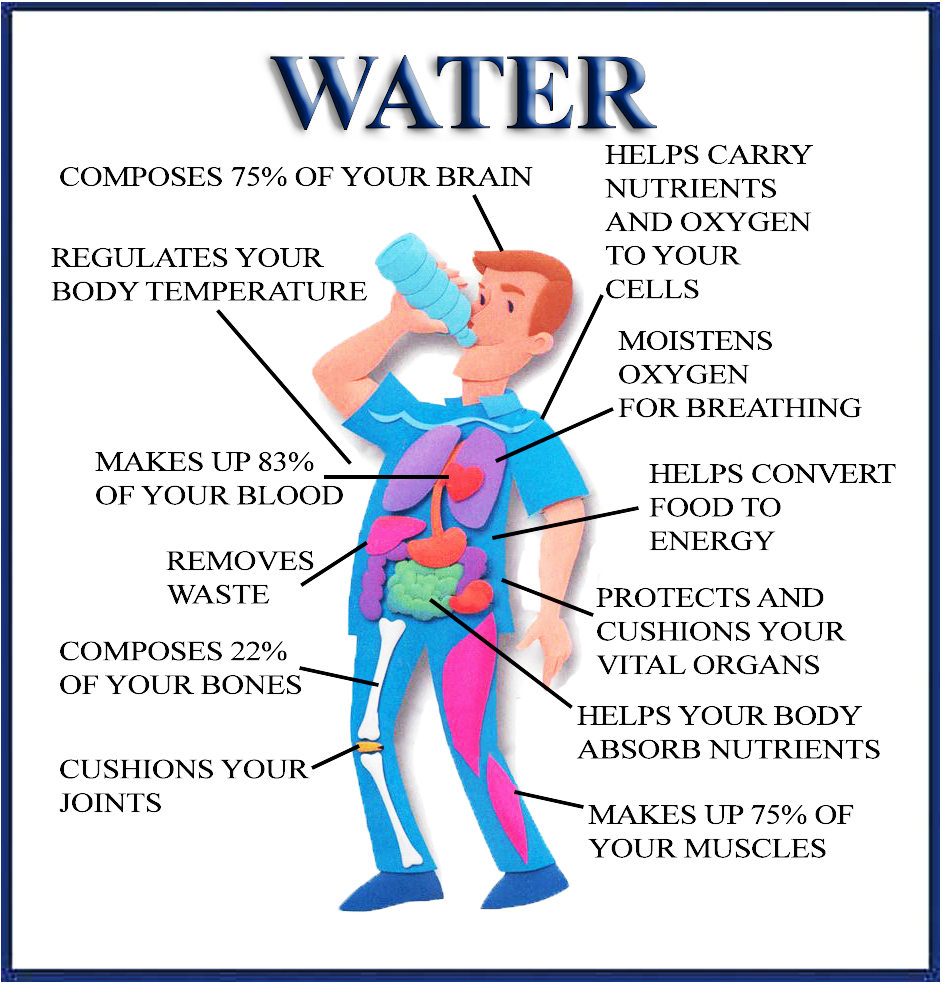The importance of water and the roles that it plays in the human body cannot be understated. Water is the most important and abundant inorganic compound in ALL living systems. Nearly all the bodies chemical reactions occur in a watery medium and many of its properties make it an indispensable compound for life (Tortura pg. 38).
Total body water is distributed between two main compartments –“water inside the cells” and “water outside the cells”.
Intracellular fluid (water) – The majority of the water in the body is contained in the cytoplasm of cells (inside the cells) and is known as intracellular fluid. Intracellular fluid is the water inside the cells in which all intracellular solutes are dissolved. It constitutes two-thirds of the total body water in the body, and under normal circumstances remains under osmotic equilibrium.
Extracellular fluid (water) – The other third of the water in the body is called extracellular water. It is the fluid outside the cells and includes all other body fluids.
About 80 percent of the extracellular water occupies the microscopic spaces between the tissue cells (interstitial fluid); The remaining 20 percent is plasma – the liquid portion of blood (Tortora pg. 1087).
Interstitial fluid surrounds the tissues and provides the appropriate micro-environment that allows the movement of ions, proteins and nutrients across the cell barrier. This fluid is not static; it is constantly being refreshed by cell capillaries and collected by lymphatic capillaries.
Other extracellular fluids that are grouped with interstitial fluid include lymph, and lymphatic vessels, cerebral spinal fluid in the nervous system, synovial fluid in joints aqueous humor and vitreous body in the eyes; endolymph and perilymph in the ears; and plural, pericardial and peritoneal fluids between the serous membranes.
Drinking Water vs. Obtaining Water from Foods and Beverages
To function properly and avoid dehydration the human body requires regular water intake. The amount depends on various factors that include the level of activity, temperature and humidity. Most of the water humans take in is through foods and beverages other than pure water, but this comes at a cost. The body has to break down the foods in order to extract the water for use.
Drinking water is a more efficient and practical way of hydrating the body. The water is transported immediately to the tissues where it can be utilized.
Roles of Water in the Body
The human body is comprised of up to 70 percent water, and over 80 percent of the brain is made up of water. The effects of dehydration on the overall state of the body can be problematic and at times life threatening. Several physiological roles of water in the body include: Water serves as a transportation system, water is a lubricant, water regulates body temperature, and water participates in many biological reactions.

